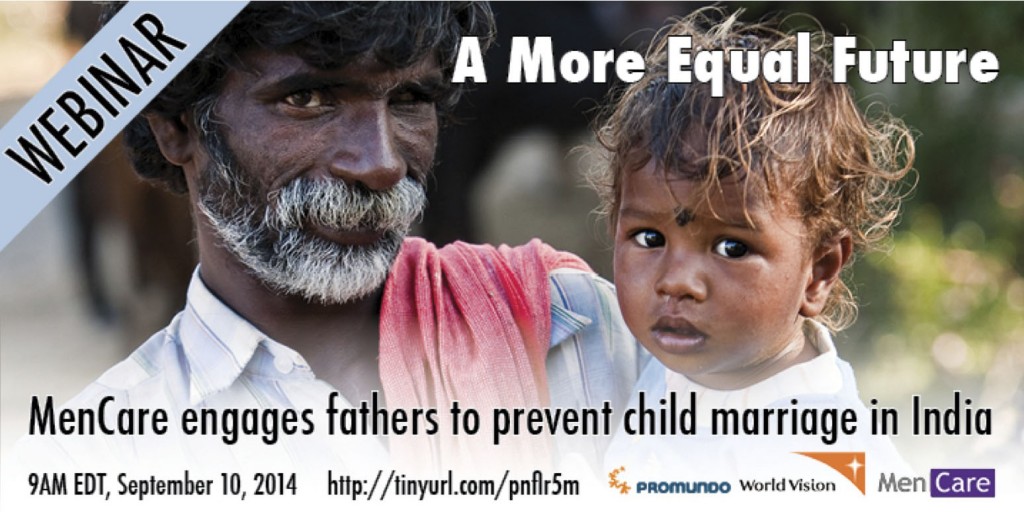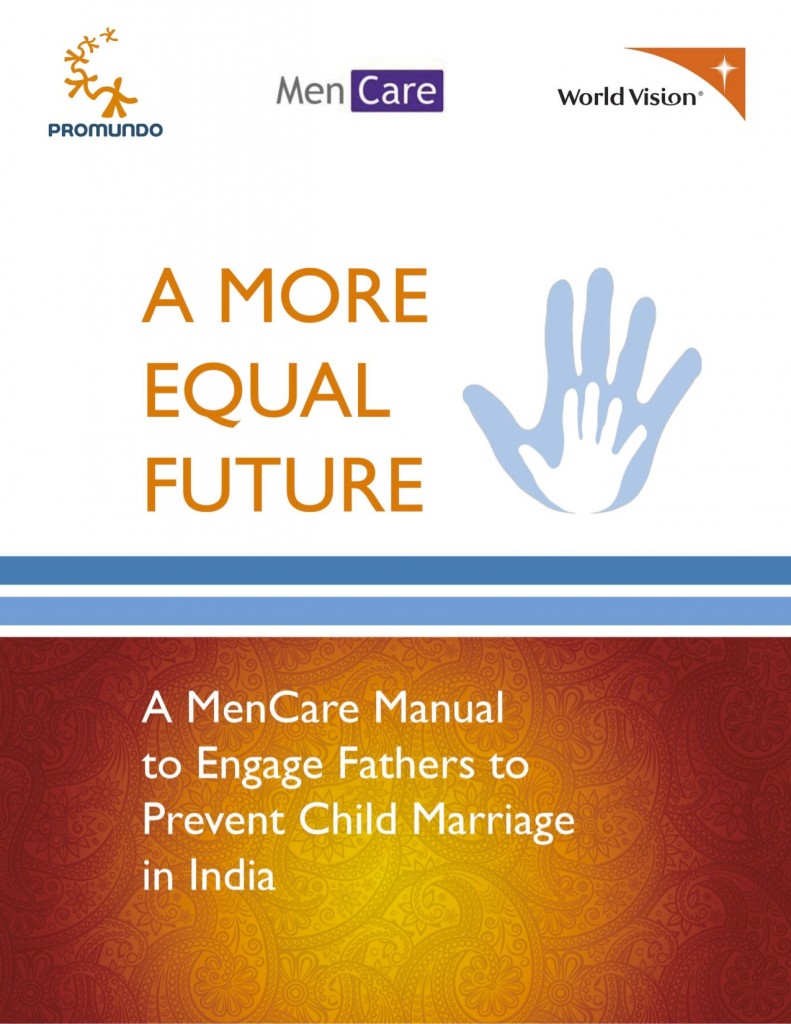 On September 10, MenCare co-hosted the online launch of A More Equal Future, a MenCare manual designed to help fathers, daughters, and families critically examine and change norms that support child marriage in India. Developed as part of a collaboration between World Vision and MenCare’s global co-coordinator Equimundo, A More Equal Future addresses harmful societal and cultural practices that support the continuation of child marriage in India.
On September 10, MenCare co-hosted the online launch of A More Equal Future, a MenCare manual designed to help fathers, daughters, and families critically examine and change norms that support child marriage in India. Developed as part of a collaboration between World Vision and MenCare’s global co-coordinator Equimundo, A More Equal Future addresses harmful societal and cultural practices that support the continuation of child marriage in India.
The event highlighted research results on the attitudes and behaviors around child marriage in the Agra region of India, including family roles and relationships, as well as how Equimundo and World Vision are equipping group facilitators to address and change behaviors through gender transformative group education.
The webinar’s presenters were Jane Kato-Wallace, Program Officer at Equimundo, and Yeva Avakyan, Senior Advisor of Gender and Evaluation at World Vision US.
 Yeva Avakyan began by highlighting the formative research that informed the development of A More Equal Future. Researchers examined norms around gender roles, children’s education, and causes and beliefs related to early marriage by conducting focus group discussions and key informant interviews with community members, World Vision staff, local government leaders, and health workers. The results of this research shed light on how the prioritization of boys in families may result in a low educational attainment among girls, and how cultural norms limit the involvement of fathers as caregivers. The lack of policy enforcement was also implicated as a structural factor that perpetuates gender inequalities, as well as the practice of child marriage.
Yeva Avakyan began by highlighting the formative research that informed the development of A More Equal Future. Researchers examined norms around gender roles, children’s education, and causes and beliefs related to early marriage by conducting focus group discussions and key informant interviews with community members, World Vision staff, local government leaders, and health workers. The results of this research shed light on how the prioritization of boys in families may result in a low educational attainment among girls, and how cultural norms limit the involvement of fathers as caregivers. The lack of policy enforcement was also implicated as a structural factor that perpetuates gender inequalities, as well as the practice of child marriage.
The findings from this research informed the key focus areas of the manual, as presented by Equimundo’s Jane Kato-Wallace. The manual’s focus areas include gender norms, household decision-making and budgeting, men and caregiving, violence, and alcoholism; these themes are distributed across 10 sessions and designed to be implemented with men, their partners, and their daughters. To further inform the development of the manual, trainings were conducted to familiarize group facilitators with the material.
Yeva also discussed the implementation of A More Equal Future in more detail. Specific activities included focus group discussions with men, their partners, and their daughters, as well as the mobilization of male participants for a campaign to end child marriage. These activities were consistent with the program’s overall objective to provide a safe and constructive space for men – and their partners and daughters – to reflect on cultural values and gender norms that perpetuate the devaluation of girls and serve as obstacles to men’s participation as involved fathers.
These activities appeared to have positive effects on male participants, including an increased understanding of how gender inequality influences relationships between men and women, and altered views on early marriage. Participants also began sharing domestic work with their partners, as well as decision-making power, and caregiving responsibilities.
Read the full version of A More Equal Future, listen to a recording of the webinar launch, and download the slides used during the presentation.